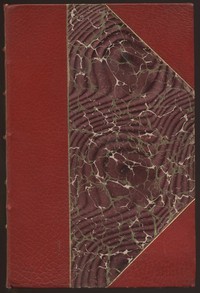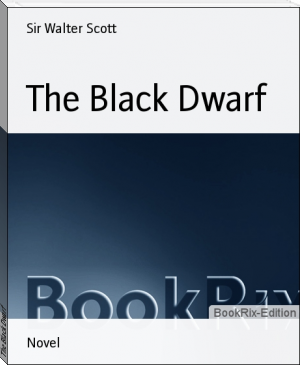Old Mortality, Volume 2. by Walter Scott (most important books to read txt) 📗

- Author: Walter Scott
Book online «Old Mortality, Volume 2. by Walter Scott (most important books to read txt) 📗». Author Walter Scott
The multitude had turned their heads in the direction to which he pointed. The sight of the glittering files of the English Foot-Guards, supported by several squadrons of horse, of the cannon which the artillerymen were busily engaged in planting against the bridge, of the plaided clans who seemed to search for a ford, and of the long succession of troops which were destined to support the attack, silenced at once their clamorous uproar, and struck them with as much consternation as if it were an unexpected apparition, and not the very thing which they ought to have been looking out for. They gazed on each other, and on their leaders, with looks resembling those that indicate the weakness of a patient when exhausted by a fit of frenzy. Yet when Morton, springing from the rostrum, directed his steps towards the bridge, he was followed by about an hundred of the young men who were particularly attached to his command.
Burley turned to Macbriar—"Ephraim," he said, "it is Providence points us the way, through the worldly wisdom of this latitudinarian youth.—He that loves the light, let him follow Burley!"
"Tarry," replied Macbriar; "it is not by Henry Morton, or such as he, that our goings-out and our comings-in are to be meted; therefore tarry with us. I fear treachery to the host from this nullifidian Achan—Thou shalt not go with him. Thou art our chariots and our horsemen."
"Hinder me not," replied Burley; "he hath well said that all is lost, if the enemy win the bridge—therefore let me not. Shall the children of this generation be called wiser or braver than the children of the sanctuary?—Array yourselves under your leaders—let us not lack supplies of men and ammunition; and accursed be he who turneth back from the work on this great day!"
Having thus spoken, he hastily marched towards the bridge, and was followed by about two hundred of the most gallant and zealous of his party. There was a deep and disheartened pause when Morton and Burley departed. The commanders availed themselves of it to display their lines in some sort of order, and exhorted those who were most exposed to throw themselves upon their faces to avoid the cannonade which they might presently expect. The insurgents ceased to resist or to remonstrate; but the awe which had silenced their discords had dismayed their courage. They suffered themselves to be formed into ranks with the docility of a flock of sheep, but without possessing, for the time, more resolution or energy; for they experienced a sinking of the heart, imposed by the sudden and imminent approach of the danger which they had neglected to provide against while it was yet distant. They were, however, drawn out with some regularity; and as they still possessed the appearance of an army, their leaders had only to hope that some favourable circumstance would restore their spirits and courage.
Kettledrummle, Poundtext, Macbriar, and other preachers, busied themselves in their ranks, and prevailed on them to raise a psalm. But the superstitious among them observed, as an ill omen, that their song of praise and triumph sunk into "a quaver of consternation," and resembled rather a penitentiary stave sung on the scaffold of a condemned criminal, than the bold strain which had resounded along the wild heath of Loudon-hill, in anticipation of that day's victory. The melancholy melody soon received a rough accompaniment; the royal soldiers shouted, the Highlanders yelled, the cannon began to fire on one side, and the musketry on both, and the bridge of Bothwell, with the banks adjacent, were involved in wreaths of smoke.
CHAPTER XI. As e'er ye saw the rain doun fa', Or yet the arrow from the bow, Sae our Scots lads fell even down, And they lay slain on every knowe. Old Ballad.
Ere Morton or Burley had reached the post to be defended, the enemy had commenced an attack upon it with great spirit. The two regiments of Foot-Guards, formed into a close column, rushed forward to the river; one corps, deploying along the right bank, commenced a galling fire on the defenders of the pass, while the other pressed on to occupy the bridge. The insurgents sustained the attack with great constancy and courage; and while part of their number returned the fire across the river, the rest maintained a discharge of musketry upon the further end of the bridge itself, and every avenue by which the soldiers endeavoured to approach it. The latter suffered severely, but still gained ground, and the head of their column was already upon the bridge, when the arrival of Morton changed the scene; and his marksmen, commencing upon the pass a fire as well aimed as it was sustained and regular, compelled the assailants to retire with much loss. They were a second time brought up to the charge, and a second time repulsed with still greater loss, as Burley had now brought his party into action. The fire was continued with the utmost vehemence on both sides, and the issue of the action seemed very dubious.
Monmouth, mounted on a superb white charger, might be discovered on the top of the right bank of the river, urging, entreating, and animating the exertions of his soldiers. By his orders, the cannon, which had hitherto been employed in annoying the distant main body of the presbyterians, were now turned upon the defenders of the bridge. But these tremendous engines, being wrought much more slowly than in modern times, did not produce the effect of annoying or terrifying the enemy to the extent proposed. The insurgents, sheltered by copsewood along the bank of the river, or stationed in the houses already mentioned, fought under cover, while the royalists, owing to the precautions of Morton, were entirely exposed. The defence was so protracted and obstinate, that the royal generals began to fear it might be ultimately successful. While Monmouth threw himself from his horse, and, rallying the Foot-Guards, brought them on to another close and desperate attack, he was warmly seconded by Dalzell, who, putting himself at the head of a body of Lennox-Highlanders, rushed forward with their tremendous war-cry of Loch-sloy.
[Note: This was the slogan or war-cry of the MacFarlanes, taken from a lake near the head of Loch Lomond, in the centre of their ancient possessions on the western banks of that beautiful inland sea.]The ammunition of the defenders of the bridge began to fail at this important crisis; messages, commanding and imploring succours and supplies, were in vain dispatched, one after the other, to the main body of the presbyterian army, which remained inactively drawn up on the open fields in the rear. Fear, consternation, and misrule, had gone abroad among them, and while the post on which their safety depended required to be instantly and powerfully reinforced, there remained none either to command or to obey.
As the fire of the defenders of the bridge began to slacken, that of the assailants increased, and in its turn became more fatal. Animated by the example and exhortations of their generals, they obtained a footing upon the bridge itself, and began to remove the obstacles by which it was blockaded. The portal-gate was broke open, the beams, trunks of trees, and other materials of the barricade, pulled down and thrown into the river. This was not accomplished without opposition. Morton and Burley fought in the very front of their followers, and encouraged them with their pikes, halberds, and partisans, to encounter the bayonets of the Guards, and the broadswords of the Highlanders. But those behind the leaders began to shrink from the unequal combat, and fly singly, or in parties of two or three, towards the main body, until the remainder were, by the mere weight of the hostile column as much as by their weapons, fairly forced from the bridge. The passage being now open, the enemy began to pour over. But the bridge was long and narrow, which rendered the manoeuvre slow as well as dangerous; and those who first passed had still to force the houses, from the windows of which the Covenanters continued to fire. Burley and Morton were near each other at this critical moment.
"There is yet time," said the former, "to bring down horse to attack them, ere they can get into order; and, with the aid of God, we may thus regain the bridge—hasten thou to bring them down, while I make the defence good with this





Comments (0)